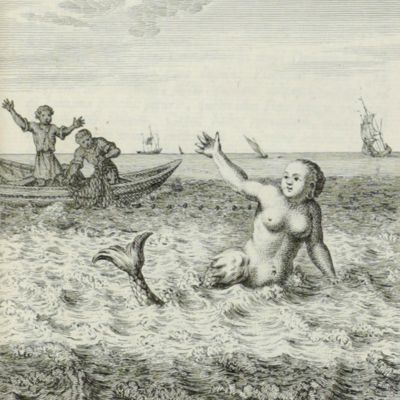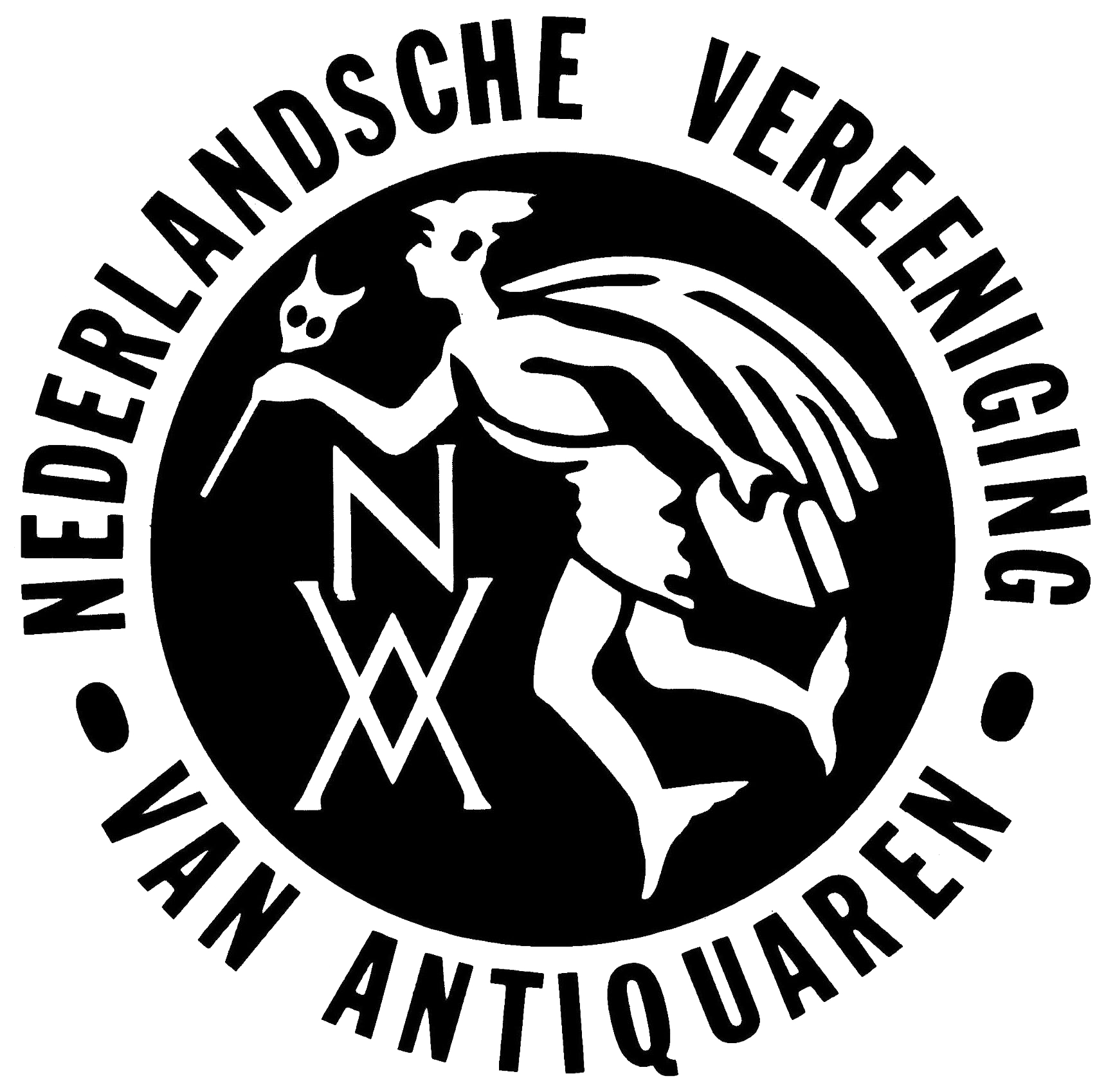Robinet, J. B.
Vue philosophique de la gradation naturelle des formes de l'etre, ou les essais de la nature qui apprend a faire l’homme.
Amsterdam, E. van Harrevelt, 1768. 8vo (18.8 x 11.7 cm). Title in red and black with engraved vignette; [iv], 260, [iv] pp.; ten finely engraved plates. Contemporary full mottled calf; spine with five raised, gilt-ornamented bands; compartments rich gilt with floral vignettes, and burgundy morocco label with gilt title. Front board with gilt-crowned vignette, board edges gilt-lined. Marbled endpapers. Edges red.
First edition. Jean-Baptiste [René] Robinet (1735-1820) was a French naturalist, known for his work De la nature (1761-1768). The first four parts were published in 1761-1763, followed five years later by the present work, which contains the most plates. In this final work - regarded both as a concluding, fifth volume, and as a separate work - Robinet describes natural objects resembling man, as well as mermaids and monsters (with fine illustrations), arguing that nature has a tendency to produce objects and living things that more and more resemble Man; i.e. that the formation of Man is nature’s ultimate goal. The title, indeed, translates as Philosophical view on the natural gradation of forms of being, or the trails of nature to learn to make Man.“Robinet’s work illustrates several important elements in the scientific thinking of the second half of the eighteenth century: the unity of nature, the chain of beings, universal dynamism and sensibility, and - at this early date - vitalism.” (DSB). “Robinet is one of the many precursors in the history of evolutionary thought who contributed to the process which later crystallized in the work of Charles Darwin. [He] was led from observations into the idea of the transmutation of species and so into a theory of evolution, which in some important respects anticipated modern ideas. In De la nature ... Nature was not God, but necessarily and eternally evolved from Divine essence. Creation is the everlasting work of the Deity, who from eternity has been working and smoothly progressing in the manner of Nature. There are no leaps. All things must have come from unity, which has been infinitely diversified. Kingdoms, classes and species are artificial works of man, of which Nature knows nothing. The orangutan was next to man in the scale of being. All the links of Nature’s chain may not yet have been discovered, but they would be discovered before long. Robinet represented a teleological point of view in his discussions on evolution. All was produced from a divine, pre-existing, and static master-plan. He wrote that in diverse lower animals, Nature advances, groping towards the excellence of the human being. Some imperceptible progress is made at each step, each new production a variation of the primitive design, becoming very responsive after a number of metamorphoses. The development of the human machine had taken a long succession of arrangements, compositions and dissolutions, additions and deletions, alterations, cancellations, and changes of all kinds.” (Wikipedia). Slight wear to board edges and hinges; inside remarkably clean, unmarked. An excellent copy in an attractive contemporary binding. DSB, volume XI, pp. 492-493. Not in Brunet.




